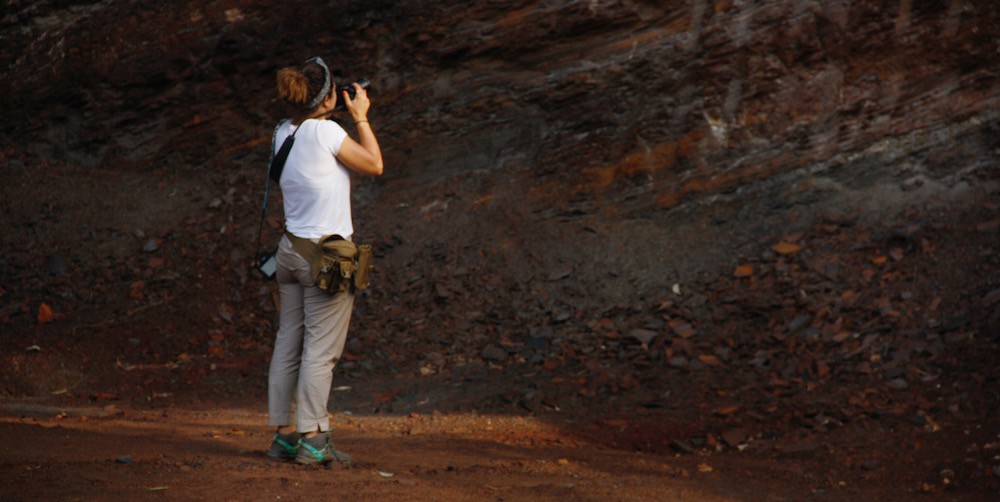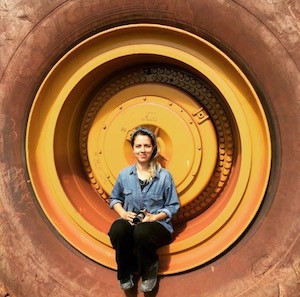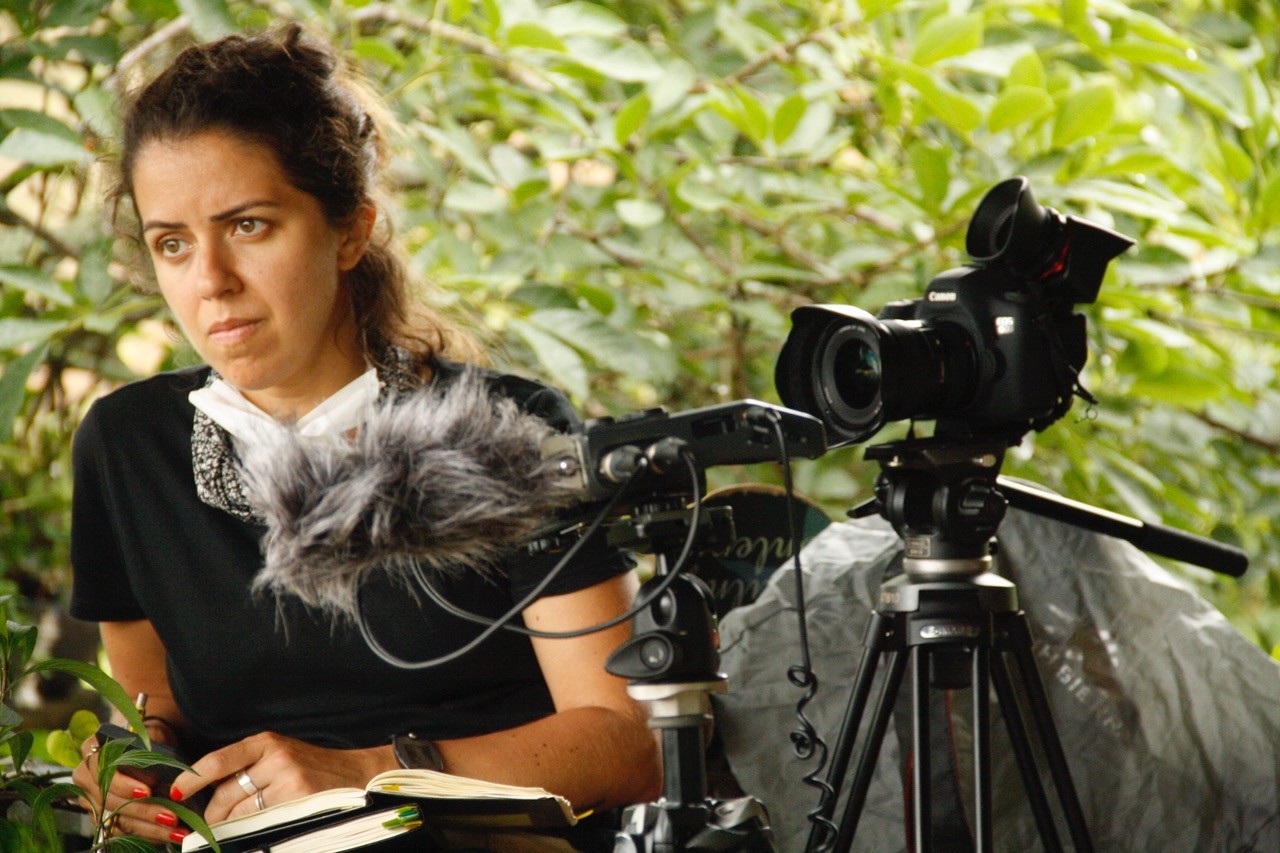Alumna Júlia Pontés ’22 Awarded 2023 Environmental Art Grant from Anonymous Was a Woman
Visual Arts alumna Júlia Pontés ’22 is among the inaugural recipients of the Environmental Art Grant, a new program launched by Anonymous Was A Woman (AWAW) in collaboration with the New York Foundation for the Arts.
Visual Arts alumna Júlia Pontés ’22 is among the inaugural recipients of the Environmental Art Grant, a new program launched by Anonymous Was A Woman (AWAW) in collaboration with the New York Foundation for the Arts.
The AWAW Environmental Art Grant provides up to $20,000 for projects led by women-identifying artists in the United States and US Territories. The grant supports environmental art projects that inspire thought, action, and ethical engagement.
“With this grant, Anonymous Was A Woman is expanding our impact to fund work that addresses the climate crisis,” AWAW Founder Susan Unterberg said to Artforum. “The enormous response received is proof that artists are eager to confront the practical and existential crises of our current moment creatively, and that this kind of work deserves much more attention and resources.”
Pontés is among 14 female-identifying artists from across the country selected to receive one-time grants of up to $20,000 to support their proposed project, with funding totaling $250,000. All of the selected projects will have a public engagement component to be staged by June 2023.
“It is so important that initiatives like the AWAW Environmental Art Grant exist,” Pontés said. “For socially-engaged artists like myself, it is often so hard to fund your work. Funding opportunities like this are the only way these kinds of projects can be sustained.”
Pontés’s selected project, entitled Env-IRON-ment, is a documentary photography, video, and sound project that investigates American locations that lived the iron industry dream—its bonanzas and railroads, the ghost towns that have emerged since the mines were exhausted, unincorporated areas, places where nature is taking over, and places struggling to survive. As part of the project, Pontés, who is originally from the Iron Quadrangle in Brazil, will travel between two Iron Triangles in the US: the first is located in New York City and has become the end destination of cars that serve no purpose other than scrap. The second is in Richmond, California, which gets its name from three major railroad tracks that roughly define its boundaries, where an oil processing plant has created environmental waste that impacts its surrounding communities.
Env-IRON-ment is a natural extension of Pontés’s work at Columbia, which culminated in her thesis, Living Portrait of a Slow Death. The piece explores hundreds of years of mineral extraction, examining not only how it shapes the environment, but also the cultural identities and communities of those who live in the surrounding areas. The multimedia project presents only a small portion of her personal archive of materials from her years of research. Pontés also previously received a grant from National Geographic for her project on COVID-19 impacts in mining communities and the environment.
Now, Pontés’s research will take new shape as she begins work on Env-IRON-ment.
“Everything starts with research,” Pontés said. “I began by gathering satellite images and geological surveys of the US, identifying the locations I wanted to visit. Once I arrive at these sites, my focus turns to engaging the community, finding the ways I can portray them. It is a very multimedia project by nature, and I plan to use film as well as audio. I want to put contact microphones on the mountains themselves to record the sounds of these places—can you hear birds? If you can’t, there’s usually something wrong.”
Through Env-IRON-ment, Pontés will explore several questions: Is the environment ever able to recover? Was the mining worth it economically, considering the environmental degradation and societal costs? Is she able to help her daughter, a first generation American, build the same relationship to the environment that Pontés has with her home of Brazil?
“The mineral chain is never really addressed in climate change conversations,” Pontés said. “We’re not really addressing our relationship with the environment. We’re just putting the crisis off for another generation to pick up on. What are the choices we are really making?”
Read more about 2023 AWAW Environmental Art Grant award winners here.
Júlia Pontés is a photographer, visual artist, and mining researcher. Her work focuses mainly on extractivism and mining explorations in Brazil. Her mining visual survey has been recognized by Anonymous was a Woman, Visura, the National Geographic Society, Harvard University's Planetary Health Alliance, Visura, and NYFA; it has been published in several international media outlets, and it has been exhibited in the US, Brazil, Spain, Argentina, France, Germany, and Guatemala. Júlia holds a specialization in Law and Economics from the UTDT in Argentina, a certificate in photography from the International Center of Photography (ICP) in NY, and an MFA in Visual Arts from Columbia University.


